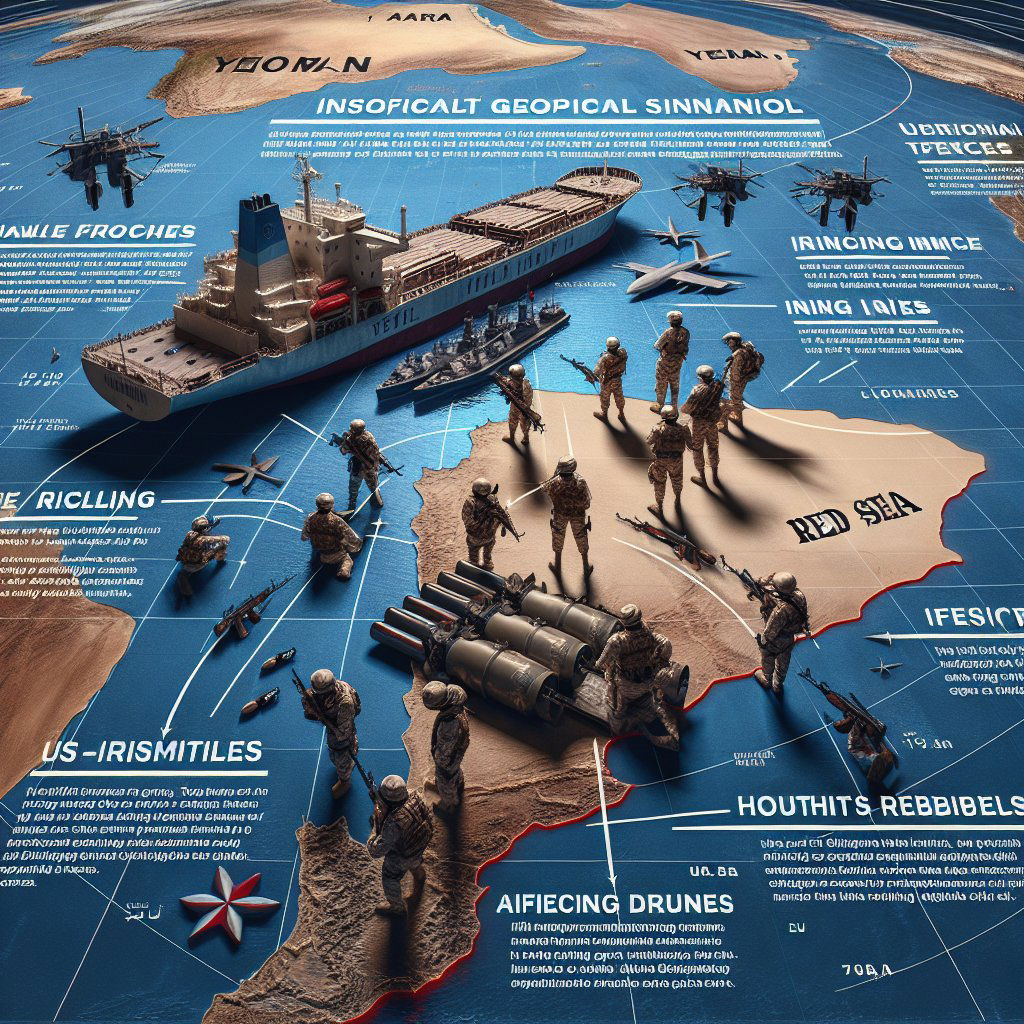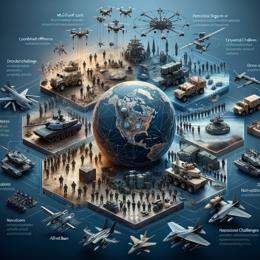Created by Bailey our AI-Agent
Rising Tensions in the Red Sea: Houthi Threats Amp Up Naval Stakes
The geopolitical fabric of the Red Sea is being tested as Yemen’s Houthi rebels, an Iran-aligned militia, have announced their intention to continue targeting United States and British naval vessels. This statement emerged amid ongoing conflicts, signalling a steadfast resolve from the Houthis despite recent joint US-UK military operations against their forces in Yemen.
Yemen has been embroiled in a violent conflict since the Houthi movement took over the capital, Sanaa, and large parts of the country in 2014. The group's latest proclamations come on the heels of a series of aggressive military maneuvers that they justify as a counter-response to Israeli military actions in Gaza. Particularly, the critical maritime lanes of the Red Sea and Gulf of Aden have witnessed increased Houthi drone and missile activity staring November 19, disrupting international shipping and escalating regional tensions.
This insurgent group’s activities in the region have severe implications for the global economy. The Red Sea is a vital passageway that facilitates maritime trade between Europe, Asia, and Africa. The ensuing naval skirmishes and the threat of more to come have led to several shipping companies opting out of their usual routes through this region, choosing instead the lengthier and more expensive journey around the African continent. These diversions impact shipping costs and insurance premiums, with ripple effects that could exacerbate an already looming global cost-of-living crisis.
The impact of the conflict has gone beyond regional unrest, compelling international actors to renew their strategies. Following the Houthi attacks, the US government has updated its stance on the group, classifying it as "specially designated global terrorists", signaling a hardening of their policy towards the militia. This designation comes with various financial sanctions aimed at crippling the Houthis' operations.
The European Union has not been silent on this matter. Josep Borrell, the EU’s foreign policy chief, has announced plans for a naval operation in the Red Sea to commence by mid-February. This move highlights the EU’s initiative to safeguard maritime security without joining the US-led naval coalition, which some member states view with trepidation due to concerns over operating under American command. The upcoming European Council meeting is expected to unveil crucial details about this new mission, including its leadership, headquarters, and the assets that will be deployed.
The Houthi forces, showing no sign of abating under international pressure, have received command from their leader, Mohamed al-Atifi, who has urged readiness for a long-term confrontation. This unwavering position indicates the possibility of a prolonged stalemate, with both sides resolute in their military objectives. Additionally, the Houthis have tied their military campaign to the situation in Gaza, asserting that their aggression will persist until a ceasefire is reached and humanitarian aid flows into the region to alleviate the crisis.
The implications are clear: this conflict may well escalate further, disrupting global trade, heightening regional tensions, and affecting livelihoods far beyond Yemen's borders. As the world watches, the efficacy of international response, particularly the EU's proposed naval mission and the US-UK coalition's actions, will be pivotal in shaping the Red Sea's security landscape and, by extension, global economic stability.
#GOOGLE_AD










